Financial well-being in retirement doesn't start the day we stop working – it’s built over the years...
Top 8 Books on Investing.... and more
There's never enough knowledge. This also applies to finance, so we present our list of the 10 best books on investing. These readings will help you better understand both the market and yourself, which means making better investment decisions over the long term. Enjoy your reading!

You want to keep your budget under control, manage your money consciously and invest wisely? Great. But if you want to be successful in this field, it's essential that you keep expanding your financial knowledge. The mission of financial education continues to guide us. That's why we composed a list of ten books that will help you better understand the world of finance and investing and make you look at it from a completely different perspective. The items on the list may also make your spring evenings more pleasant. Whether you already have a lot of experience, or you are just starting out, we assure you will find something for yourself in this list. And if you expect to only find classic investment books below... you may be surprised.
The Richest Man in Babylon, George S. Clason
The first of our recommended readings was originally published as a series of pamphlets almost a century ago, but the truths it contains remain universal. This witty, lightly written book teaches how to achieve financial success on the basis of a series of parables set in ancient Babylon. Moving the action a few thousand years back makes it impossible to get bored while reading.
And what basic advice does George S. Clason give?
- Get into the habit of saving.
- Invest in what you understand.
- Listen to those who are wiser than you.
However, it is worth reading the whole book to learn about the mechanisms on which saving and wealth multiplication are based, as well as to get many tips and inspiration. The knowledge contained in the book remains relevant to this day and the lessons it contains can pay off throughout life.
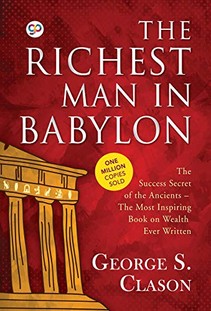
Thinking, Fast and Slow, Daniel Kahneman
“Thinking, Fast and Slow” by the Israeli-American Nobel Prize winner is the absolute number one book recommended by investors, which may be surprising as at first glance its content has little to do with investing.
Kahneman explains in his book how our mind works and points out the mental mistakes we make, which in turn influence our investment behavior. The author points out how intuition and emotions lead us to make wrong judgments and decisions and help us counteract this.
A textbook on behavioral economics at many universities, this is an engaging guide to the mysteries of the human mind that can save many investors from making further investment mistakes.
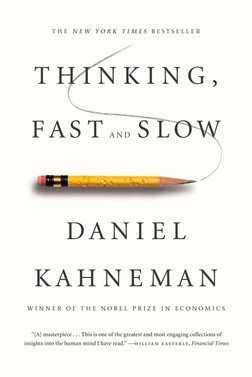
Reminiscences of a Stock Operator, Edwin Lefevre
"Reminiscences of a stock operator” is a novel set in the early 20th century in the United States, based on the biography of Jesse Livermore, a stock market player, and speculator who repeatedly gained multimillion-dollar fortunes and then lost them badly. What is special about his character is that he made his fame by earning the most money when everyone else was losing - more precisely, during the crashes of 1907 and 1929.
Livermore runs away from home at the age of 15 - unwilling to accept the life of a farmer that his father expected from him - and begins his adventure with the stock market, initially as an assistant in a brokerage firm. Following his fate, together with young Jesse we can learn the realities of the market and the secrets of investing in the stock market. The adventures of the protagonist teach us the importance of constantly fighting against our emotions and weaknesses, being persistent, patient, and managing risk wisely.
Written in an accessible and engaging format, the book helps readers learn the basic truths about investing and understand why speculation does not lead to success in the long run...
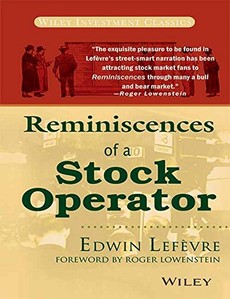
Playing with FIRE (Financial Independence Retire Early): How Far Would You Go for Financial Freedom?, Scott Rieckens
In his book, Scott Rieckens tells the story of himself and his wife, a typical middle-class American couple, while relating the ideas of the FIRE (Financial Independence, Retire Early) movement, whose adherents want to achieve financial freedom and possibly before the official retirement age.
Scott, inspired by a podcast by Tim Ferris, realized one day that he was spending too much time making money that wasn't bringing him happiness, and that consumerism was not and would never be able to provide him with fulfillment. This thought became the impetus that allowed him and his wife to break out of the vicious cycle of constantly spending money and earning money to spend even more.
Rieckens' story inspires you to take a closer look at your own financial situation and to review your approach to money. It will be useful not only to those who already dream of financial freedom.
If you want to know more about the book, the founder of Finax, Juraj Hrbatý, has written a more extensive review of the book in the past.
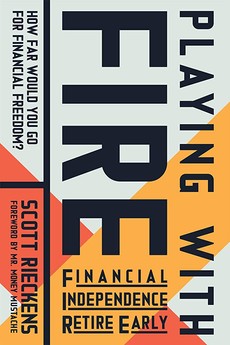
The Compound Effect, Darren Hardy
Another short (less than 200 pages) book, which at a first glance does not touch on investing at all. Darren Hardy explains in his book how seemingly small changes, repeated regularly, accumulate, leading to a spectacular effect.
"The power of small changes can be brilliantly demonstrated by the example of a plane flying from Los Angeles to New York. If the bow of the plane deviates from its course by 1 percent - which is almost invisible when the plane is on the tarmac in California - it will move the landing site 240km (i.e. to Albany in New York State or Dover in Delaware). The same is true of your habits. One unpleasant habit that doesn't seem harmful at the moment can eventually lead to a huge change over the course of your life (...)"
This principle applies very well to investing - after all, this is exactly how compound interest works, the mechanism of which is often compared to a snowball that, rolling down a mountain, slowly gains momentum while increasing its volume and growing faster and faster - but also to small financial habits which, when accumulated, allow us to save and consequently invest more and more money.
Inspiring and light-hearted, this book may even seem trivial to some. In our opinion, however, its strength lies in the simplicity of its message.

The Big Short: Inside the Doomsday Machine, Michael Lewis
This book probably does not need to be introduced to many of you - thanks to its famous film adaptation of the same title (by the way, the movie is currently available on Netflix). Michael Lewis describes how the economic crisis of 2008, which had its origins in the US stock market, came about.
Though written in a difficult language, it is a well-constructed story about the mechanisms that led to the crash, and also about human vices: greed, naivety, and perhaps even stupidity. The story shows the negative consequences of following the crowd and how difficult it is to break away from it.
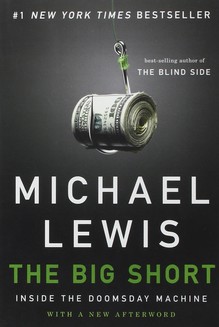
The Millionaire Next Door. The Surprising Secrets of America's Wealthy, William D. Danko, Thomas J. Stanley
If you don't know how to do something, look at the people who have already done it. Following this belief, the book's authors, William D. Danko, and Thomas J. Stanley spent several years analyzing the behavior of American millionaires to find out how to achieve financial independence. During that time, they interviewed hundreds of U.S. millionaires and surveyed many average U.S. citizens to identify what actually distinguishes the wealthiest from other people - what behaviors or financial habits (SPOILER ALERT: the key to success is consistency).
Secrets of American Millionaires is one of the best-selling books on finance and wealth building and at the same time one of the favorite financial books for Juraj Hrbaty, CEO of Finax. If you would like to read a wider review of this book, you can also find it on our blog.
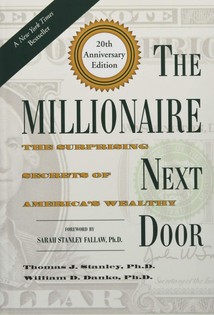
Random walk down Wall Street, Burton G. Malkiel
The author of this book, Burton G. Mankiel, is often called the Pope of passive investing. In his book he brilliantly describes the realities of the market in the United States, especially in the context of the bursting of the Internet bubble in 2000, openly advocating the idea of passive investing, which lies at the heart of Finax philosophy.
Considered one of the most important books on investing in the world, the book provides a lot of practical investment advice that will be useful for both experienced individual investors as well as those who are just starting to be active in the financial markets.
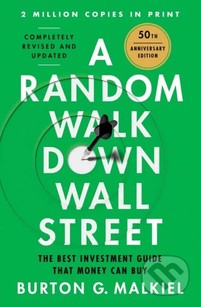
Try invest tax smart with low cost ETF funds.Let your money make money
What other books would you recommend to other investors? We are looking forward to extending our list, so if you have recently found an interesting financial book or your favorite book is not listed above yet, please send us your suggestions at client@finax.eu.
If the above list has not satisfied your appetite yet, read the reviews of other books recommended by us, which you can find on our blog.
Warning: Investing involves risk. Past returns are not a guarantee of future performance. Tax exemptions apply exclusively to residents of the respective country and may vary depending on specific tax laws. Check out our ongoing and ended promotions.



